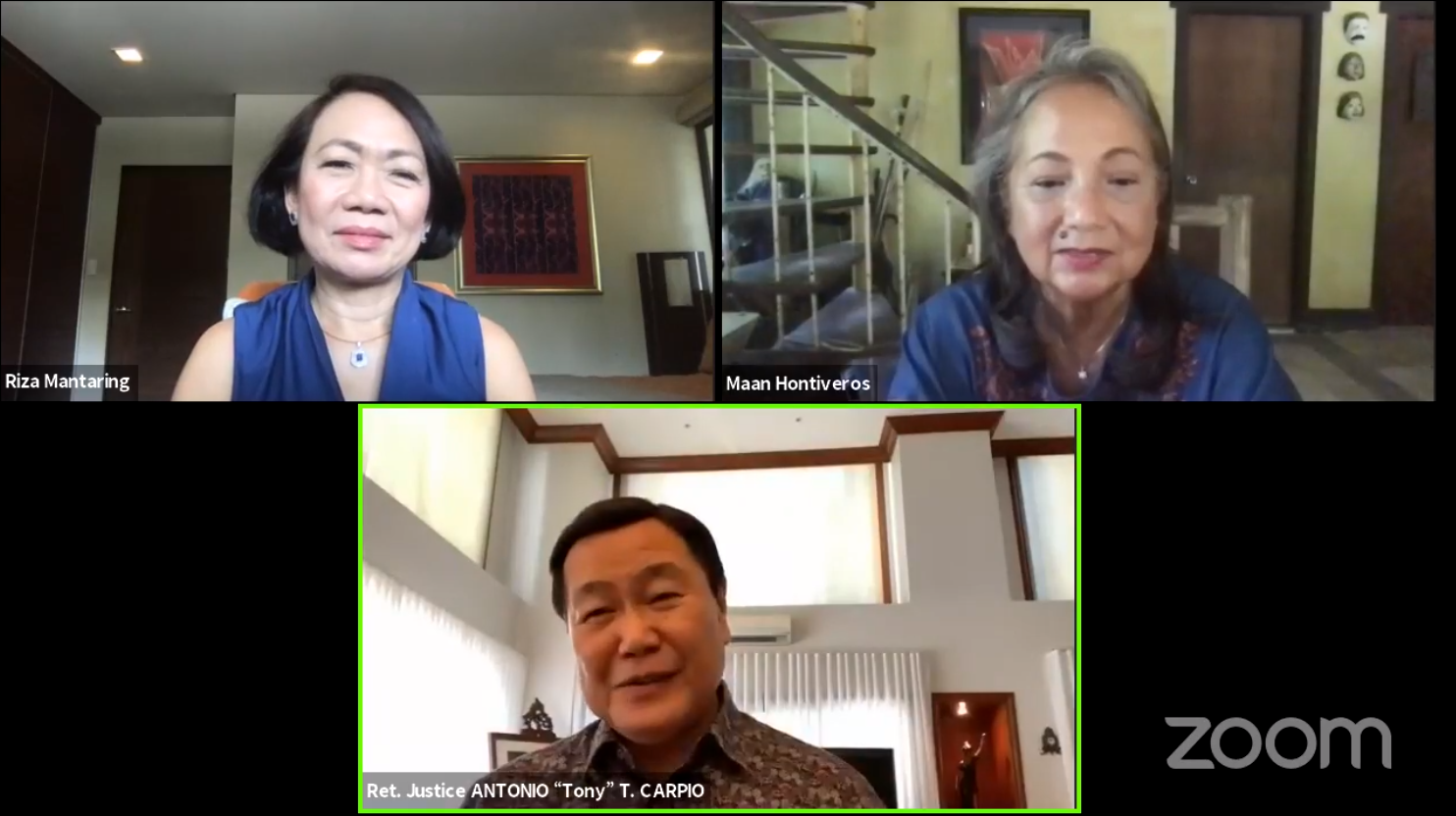Joshua Arimado • June 18, 2020
Ret. Justice Antonio Carpio: Anti-Terrorism Act of 2020 unconstitutional

Photo Credit: Management Association of the Philippines Facebook Page
MANILA, Philippines – Former Supreme Court Associate Justice Antonio T. Carpio said several provisions of the Anti-Terrorism Bill are unconstitutional.
Speaking at a webinar conducted by the Management Association of the Philippines (MAP) on Wednesday, Carpio said the bill demolishes the invariable fundamental right against unreasonable arrests provided by the constitution. He maintained that only a judge can issue warrants of arrests.
He next pointed out that certain provisions in the act are similar to the changes made in the 1973 constitution which authorized executive officials to issue warrants of arrests. This resulted in arrest search and seizure orders (ASSOs) issued by the secretary of National Defense during Martial Law.
“The Anti-Terrorism Act has demolished the first fortress and reinstated the ASSOs of the martial law period,” Carpio said.
Carpio noted that the Anti-Terrorism Counsil (ATC), composed of eight cabinet secretaries and the executive director of the Anti-Money Laundering Council under the control of President Rodrigo Duterte, has the power to issue arrest warrants.
“This is obviously unconstitutional since the present constitution allows only a judge to issue a warrant of arrest,” the former Senior Associate Justice said.
He also said that section 29 of the Act which refers to warrantless arrests is outside of Rule 113 of the Rules of Court. Rule 113 gives specific conditions by which a warrantless arrest may be done. The Act however allows the ATC to approve warrantless arrests even if they do not fit the conditions given in Rule 113.
This means the ATC is authorized to order the arrests of any person even if he or she has not commited any act of terrorism, violating the constitutional provision that arrest warrants may only be issued if there is probable cause.
He also said that the bill sets no standards or limitations on the ATC’s power to issue arrest orders.
“Clearly, the Anti-Terrorism Council can issue an arrest order even without probable cause, demolishing completely the second fortress erected by the constitution to ensure that the guarantee of unreasonable arrests is invariable,” Carpio said.
He added that the measure will have a devastating effect on freedom of speech and freedom of the press in the May 22 presidential elections.
He said that it punishes speech whether it is written, verbal, or visual that incites others to commit terrorism. He also said that the ATC without a judicial warrant can order the arrest of anyone for inciting others to terrorism even before the incitement is made. The arrested person can be detained for a total of 24 days.
He urged people to object to the said provisions in the Anti-Terrorism Act if they wish to avoid a contraction of their civil liberties.
“Vigilance is a price of freedom,” he closed.

